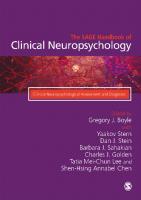Gamified Screening Tool in Singapore Detects Early Signs of Dementia in Just 15 Minutes

# Gamified Screening Tool in Singapore Detects Early Signs of Dementia in Just 15 Minutes
## Introduction
Dementia is a growing public health concern, particularly in aging populations worldwide. In Singapore, where the elderly population is rapidly increasing, early detection of cognitive decline is crucial for timely intervention and management. To address this challenge, researchers in Singapore have developed a **gamified screening tool** that can detect early signs of dementia in just **15 minutes**. This innovative approach combines neuroscience, artificial intelligence (AI), and game design to make cognitive screening more engaging, efficient, and accessible.
## The Need for Early Dementia Detection
Dementia is a progressive neurological condition that affects memory, thinking, and behavior. The most common form is **Alzheimer’s disease**, but other types include vascular dementia, Lewy body dementia, and frontotemporal dementia. Early detection is essential because:
– It allows for **early intervention**, which can slow disease progression.
– Patients and families can plan for future care and make informed decisions.
– Lifestyle modifications and medications can be introduced to improve quality of life.
Traditional dementia screening methods, such as the **Mini-Mental State Examination (MMSE)** and the **Montreal Cognitive Assessment (MoCA)**, can be time-consuming, intimidating, and sometimes culturally biased. The new gamified tool aims to overcome these limitations.
## How the Gamified Screening Tool Works
Developed by researchers from **Nanyang Technological University (NTU) and local healthcare institutions**, the tool integrates cognitive tests into an interactive game format. The key features include:
### 1. **AI-Powered Cognitive Assessment**
The tool uses AI algorithms to analyze a player’s responses, reaction times, and decision-making patterns. These insights help detect subtle cognitive impairments that may indicate early dementia.
### 2. **Engaging and User-Friendly Interface**
Unlike traditional paper-based tests, the gamified tool presents cognitive challenges in the form of **mini-games** that assess memory, attention, problem-solving, and spatial awareness. This makes the experience more enjoyable and less stressful for elderly users.
### 3. **Quick and Efficient Screening**
The entire assessment takes only **15 minutes**, making it much faster than conventional cognitive tests. This efficiency is particularly beneficial for large-scale community screenings.
### 4. **Cultural Adaptation for Singapore’s Population**
The tool is designed with **local cultural elements** to ensure relevance and familiarity for Singaporean users. This helps reduce biases that may arise from Western-based cognitive tests.
### 5. **Remote Accessibility**
The screening tool can be accessed via **tablets or smartphones**, enabling remote assessments. This is especially useful for elderly individuals who may have mobility issues or prefer home-based screenings.
## Impact on Dementia Screening in Singapore
The introduction of this gamified screening tool is expected to **revolutionize dementia detection** in Singapore. Some key benefits include:
– **Wider Reach**: The tool can be deployed in **community centers, clinics, and homes**, making cognitive screening more accessible.
– **Early Intervention**: By identifying cognitive decline at an early stage, healthcare providers can recommend lifestyle changes, cognitive training, and medical interventions.
– **Reduced Healthcare Burden**: Early detection can help reduce the long-term costs associated with dementia care, benefiting both families and the healthcare system.
– **Encouraging Participation**: The game-like format makes screening less intimidating, encouraging more elderly individuals to undergo cognitive assessments.
## Future Developments
Researchers are continuously refining the tool by incorporating **machine learning** to improve accuracy and predictive capabilities. Future developments may include:
– **Personalized Cognitive Training**: Based on screening results, the tool could recommend brain-training exercises to help maintain cognitive function.
– **Integration with Wearable Devices**: Smartwatches and fitness trackers could be used to monitor cognitive health over time.
– **Expansion to Other Countries**: Given its success in Singapore, the tool could be adapted for use in other aging populations worldwide.
## Conclusion
The gamified dementia screening tool developed in Singapore represents a **major breakthrough** in cognitive health assessment. By combining AI, neuroscience, and game design, it offers a **fast, engaging, and effective** way to detect early signs of dementia. As Singapore continues to address the challenges of an aging population, such innovations will play a crucial role in improving elderly care and enhancing quality of life.
With early detection and timely intervention, individuals at risk of dementia can receive the support they need to maintain their cognitive health for as long as possible.